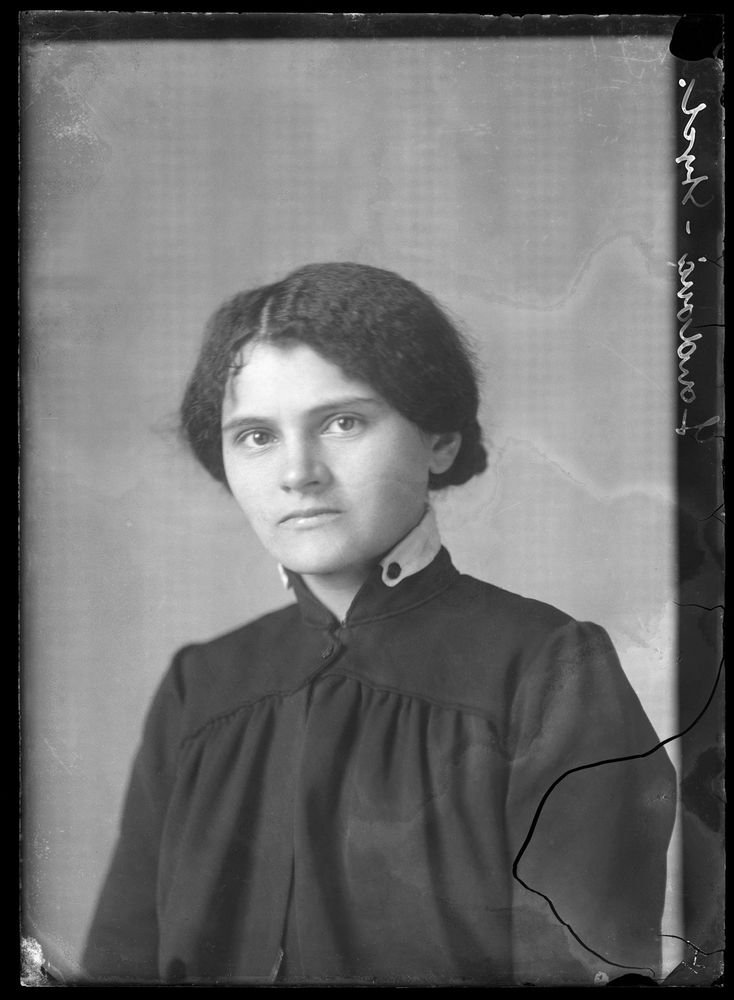Luisa Landová-Stychová
Luisa Landová-Stychová lived through some of the most turbulent times in Central Europe, and she strove to shape the direction of political change. Born into modest circumstances in the Austro-Hungarian Empire, she lacked access to formal education but developed her activist approach in the cafés and literary circles of Prague. Over five decades, Landová-Stychová’s activism evolved through anarchism, socialism, social democracy, and communism, making her a persistently active, if often marginal, figure in Czechoslovak political life.
Her early political work was grounded in social and workers’ issues, shaped by her family’s financial hardships and her own experiences. In 1912 and 1913, she became increasingly active in political circles and first joined the anarchist movement. Along with her husband, Jaroslav Stych, Landová-Stychová advocated for political change as well as for the secular and scientific education of the working class. The couple believed in a world governed by reason rather than religious dogma, a conviction tied to their desire to empower ordinary people with knowledge.

Luisa Landová-Stychová, undated (Source: Archiv © NADACE LANGHANS PRAHA)
During and after World War I, Landová-Stychová was active in radical leftist circles and pushed for systemic reform. She helped integrate the anarchist movement into more mainstream socialist politics and became one of the first eight women elected to the Czech parliament after the formation of Czechoslovakia in 1918. As a parliamentarian, she worked to introduce demands like a republican form of government into the national political conversation, though her more radical ambitions for a socialised economy were never realized.
Her commitment to women’s labour rights remained strong: in 1919, she participated in the International Congress of Working Women in Washington. There, in the debates around equal pay, she called for the full legal equality of women workers on all issues apart from maternity rather than women-specific legal protections. Citing Czechoslovakia’s example, she stressed that the ban on night work for women, for example, was used to push women out of “the more advanced and much better-paid” jobs.
Landová-Stychová was also a leader of International Red Aid, which supported imprisoned communists and their families. It was not merely a symbolic role; she helped direct material resources toward those persecuted for their political beliefs. This briefly made her a key figure in the Communist Party’s efforts to maintain solidarity among the working class even as she became increasingly disillusioned with the party’s internal politics. Partly due to her comparatively moderate views, she was gradually marginalized and eventually abandoned political activity and left the party in 1929, focusing on the family life instead. In the Stalinist era, while publicly loyal, she privately criticized abuses of power and tried to assist individuals facing persecution.
Luisa Landová-Stychová’s legacy is complex. She never achieved the influence she sought, and her name was largely erased from public memory after 1989, yet her story offers a unique perspective on the role of gender and class in political life. As someone who straddled domestic responsibilities and public ambition, who advocated for women’s rights while navigating male-dominated political spaces, Landová-Stychová’s life speaks to the challenges faced by early female activists, and to the enduring struggle for social justice from the margins.


